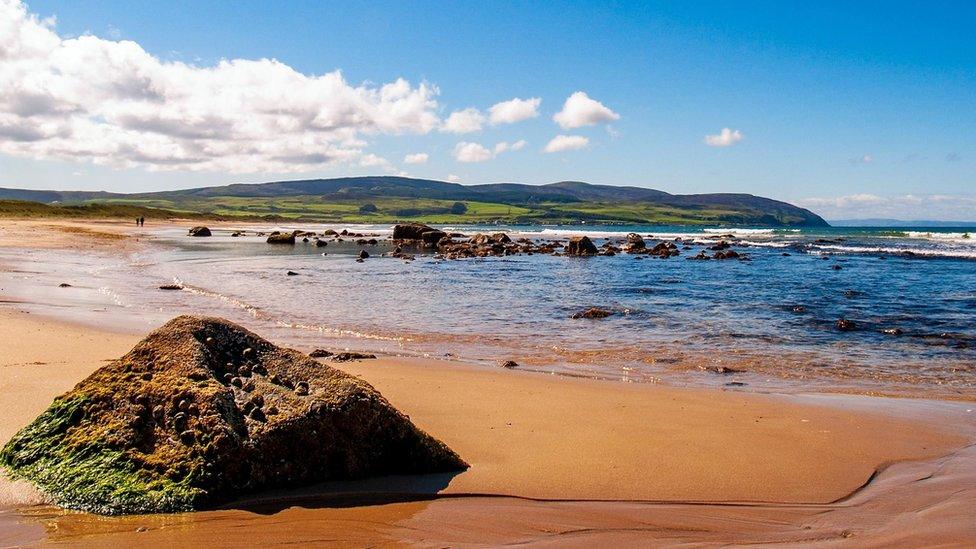Scotland had fourth hottest summer on record
- Published

Sun shines at Machrihanish in Argyll as temperatures soared in Scotland this summer
Scotland has had its fourth hottest summer on record, according to provisional figures released by the Met Office.
The city of Glasgow, which will host the COP26 climate change conference, had its hottest ever summer since records began in 1884.
The Met Office said it was unusual for the UK's highest August temperature to come from Scotland.
A high of 27.2C was recorded at Tyndrum, near Stirling, on 25 August.
Most of the UK recorded lower than average rainfall, with the exception of Northern Ireland and parts of eastern Scotland, according to the Met Office figures, external.
Dr Mark McCarthy, head of the Met Office's National Climate Information Centre, said: "Summer 2021 will be remembered very differently depending on where you are in the UK, with record-breaking warm conditions in parts of western Scotland and Northern Ireland, while in the south and east it's been much duller and wetter."
Earlier this week, Scottish Water urged customers to help conserve supplies after levels at some reservoirs dropped to their lowest in 18 years.

The Met Office said Glasgow was among some places in Scotland that recorded their hottest summer in almost 140 years
The company said some parts of Scotland were experiencing their second driest summer in 160 years.
It said demand remained high at up to 100 million litres per day higher than average, after falling from a spike in demand during hot weather in July.
That month more than 30 water tankers were needed to supplement supplies. People watering plants and filling paddling pools pushed the demand for water by 200 million litres extra a day for about a week.
Also in July, Loch Ness dropped to its lowest level in five years, according to the Scottish Environment Protection Agency (Sepa). Loch Ness is Scotland's largest freshwater loch by volume.
Sepa said drier than usual conditions in recent months were likely to be a "significant contributing factor" for the drop.
Related topics
- Published30 August 2021
